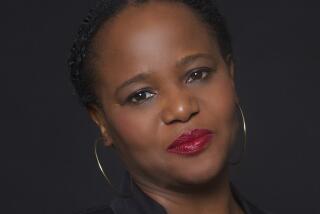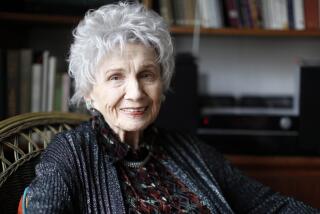‘Posthumous Keats’ by Stanley Plumly
Posthumous Keats
A Personal Biography
Stanley Plumly
W.W. Norton: 392 pp., $27.95
This is a beautiful book. As its subtitle suggests, the poet Stanley Plumly here provides a “personal” assessment of the life and work of John Keats; his biography has been a slow accretion, very much worth the wait. As Plumly states in his preface, “Books that matter the most to their authors often acquire a considerable longevity, even history, as part of their making.” This one commenced more than 20 years back, with a poem of the same title, and the subject has stayed with him since. Yet, as the preface also states, Keats has been well served by “the profile of strict biographical narrative, of which. . . there is an abundance, notably the great 1960s biographies by Walter Jackson Bate (1963), Aileen Ward (1963), and Robert Gittings (1968).” So what we read in “Posthumous Keats” is a set of ruminations, an expert’s meditation on those linked polarities: mortality and immortality, failure and fame, life and art.
Dedicated to the memory of the poet William Matthews, Plumly’s text is full of earned learned asides as to what lasts, what fails to and why. Vita brevis, ars longa est -- so runs the Latin tagline: Life is short, art long. And there’s no more convincing a demonstration of that observation than the subject of this study. Keats urged as his own epitaph, “Here lies one whose name is writ in water.” For when he died, at age 25, of what was then called consumption and now tuberculosis, he did so far from home, and poor -- in Rome, in rooms adjacent to the Spanish Steps. His family members were dead, or estranged, his beloved Fanny Brawne had grown convinced that they could not share a future, and his reputation and commercial successes were small. So was the man -- barely 5 feet tall -- and though he seemed robust at first, he soon enough succumbed to what had been a family affliction; his mother and younger brother Tom also died of the “wasting disease.”
Posterity, however, has been kind. “The whirligig of time” -- as another master of the language wrote -- “brings in his revenges.” Keats ranks with Shakespeare now, in talent if not achievement, and the homes where he so suffered in England and Italy have become museums. His grave in Rome is a pilgrimage site, the poems he scrawled and saw decried are everywhere anthologized, triumphs both of sound and sense, and this Mozart of musical language has become the very emblem of romantic gain and loss. His closest analogue in other fields is, perhaps, Vincent Van Gogh -- also ill, impoverished and recognized by colleagues but not the purchasing public -- now a multimillion-dollar franchise on the auction block. Far from “writ in water,” Keats’ name has grown synonymous with excellence in art.
Plumly is a considerable artist himself; his “Old Heart: Poems,” published last year, was a finalist for a National Book Award and received the 2007 Los Angeles Times Book Prize in Poetry in April. His 10 books of poetry and previous work of nonfiction (“Argument & Song: Sources & Silences in Poetry”) attest to a sustained career in and enduring focus on the craft. As the old adage goes, it takes one to know one: Plumly’s readings of “To Autumn” are eloquent and detailed, and his seven chapters can be read in sequence also as a kind of ode.
Turn by turn, he considers the “image” of Keats -- those drawings and sketches and life- and death-masks and subsequent fanciful portraits -- the nature of apprenticeship and penury, the vicissitudes of friendship and romance. He’s instructive on Keats’ travels and letters, incisive on sickness and Keats’ medical training, wonderful on landscape and what happens where and when. Mostly, as the following quotations should show, he’s balanced and judicious and -- no better word for it -- wise:
“He feared he had failed, his body brought down by disease, his poems belittled by Tory critics. But he also knew something: Trust the writing.”
“A good part of Keats’s growth as a poet is his questioning of the dreamer’s role and the quality of the ‘fine writing’ demanded by the art. Here at the end of his writing career, the language of dreaming has become truly the language of the experience.”
“It is as if Keats were operating in at least two, perhaps three, worlds simultaneously: the one in which he speaks fairly and honestly to his friends about his existential situation; the one in which he speaks to Fanny in contradictory, crazy and sometimes abusive ways; and, ultimately, the one in which he speaks to himself, in silence, about dying, day in, day out.”
Here is Keats’ Last Will and Testament -- as Plumly writes -- “a document blessed by its simplicity:
In case of my death this scrap of paper may be serviceable in your possession.
All my estate real and personal consists in the hope of the sale of books publish’d and unpublish’d. Now I wish Brown and you to be the first paid Creditors . . . but in case it should shower pay my Taylor the few pounds I owe him.
My Chest of Books divide among my friends --
“This modest declaration says all that needs to be said about ultimate value. A writer is the words. All that Keats is or will ever be is his poems, a fact of life he is all too well aware of.”
I could have wished -- because he does it so extremely well -- for a little more analysis of the poet’s work. Agreed, “A writer is the words,” and when Plumly turns his laser-like gaze on Keats’ letters and his verse, the book is brilliant. Less convincing, perhaps, is his portrayal of Charles Armitage Brown, whom Plumly cannot quite forgive for failing to take Keats to Rome and deputizing Joseph Severn to act as Keats’ nursemaid there. But throughout, one has the sense of an artist, two centuries later, acting as a conduit for a great predecessor and breathing him back to life. The first chapter title in “Posthumous Keats” is “On He Flared,” the final chapter, “Material Sublime.” And both declarations are true. *
Nicholas Delbanco is the Robert Frost Distinguished University professor of English at the University of Michigan. His new novel is “The Count of Concord.”
More to Read
Sign up for The Wild
We’ll help you find the best places to hike, bike and run, as well as the perfect silent spots for meditation and yoga.
You may occasionally receive promotional content from the Los Angeles Times.










